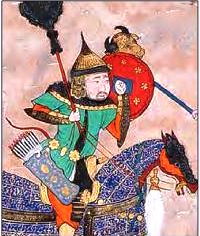Houman Karami on:
[Wikipedia]
[Google]
[Amazon]
 Houmān not to be confused with Houman, ( fa, هومان) is one of the most famous
Houmān not to be confused with Houman, ( fa, هومان) is one of the most famous
 Houmān not to be confused with Houman, ( fa, هومان) is one of the most famous
Houmān not to be confused with Houman, ( fa, هومان) is one of the most famous Turanian {{Short description, List of groups of people
Turanian is a term that has been used in reference to diverse groups of people. It has had currency in Turanism, Pan-Turkism, and historic Turkish nationalism.
Many of the uses of the word are obsolete. ...
heroes in Shahnameh, the national epic
A national epic is an epic poem or a literary work of epic scope which seeks or is believed to capture and express the essence or spirit of a particular nation—not necessarily a nation state, but at least an ethnic or linguistic group with as ...
of Greater Iran
Greater Iran ( fa, ایران بزرگ, translit=Irān-e Bozorg) refers to a region covering parts of Western Asia, Central Asia, South Asia, Xinjiang, and the Caucasus, where both Culture of Iran, Iranian culture and Iranian langua ...
. Houmān is famous for his bravery, loyalty, and chivalry, such that even Iranians who are longtime enemies of Turanians admire his personality. He is a descendant of Tur, a son of Viseh and brother of Piran. Houmān is the highest ranking Turanian commander and after Piran, he is the second leading member of Viseh clan. Houman first appears in the story of Rostam and Sohrab, where Afrasiab sends him with an army of 12,000 men to accompany Sohrab in his journey to Iran. He has been instructed by Afrasiab to not let Sohrab recognize his father, Rostam, so that they fight together and one of them kill the other. Rostam on the deathbed of Sohrab, agreed to promise that he would not hurt Houmān and his army.
Houmān did not take part in the story of Siyâvash and he was not present there when Afrasiab ordered to kill Siyâvash. However, he fights with Iranian army in the subsequent wars between Iran and Turan.
He was killed by Bizhan in the story of Davazdah Rokh Davāzdah Rokh ( fa, دَوازدَه رُخ) (Twelve combats) is a story in Shahnameh. This relatively long story (almost 2,500 verses) is described as one of the finest stories of Shahnameh in terms of "plot, dramatic description, and insight into ...
.
Beside Shahnameh, he has been also mentioned in other sources such as Jahāngirnāmeh and Tabari. Tabari mentions his name as "Khomān".
Family tree
References
{{Shahnameh Shahnameh characters